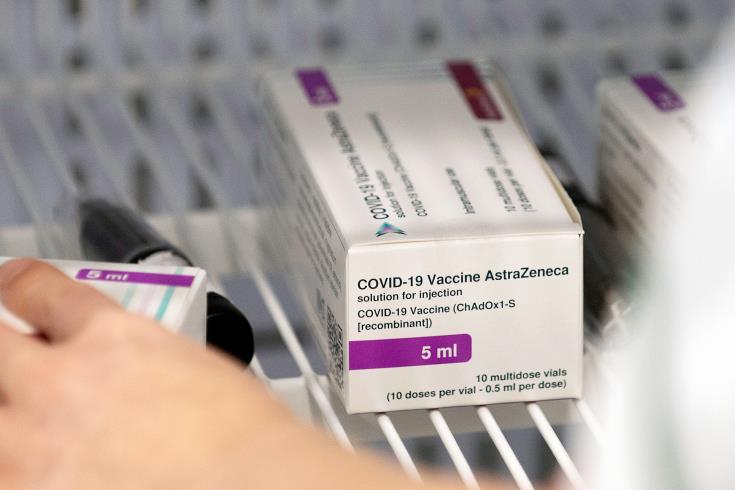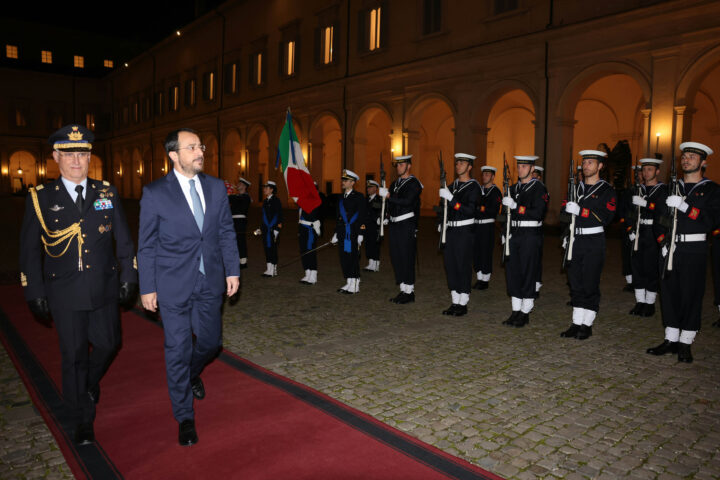With many parts of Europe going back into lockdown while Cyprus struggles to throw the shackles off a second national emergency, the Oxford-AstraZeneca vaccine debate rumbles on.
It is hard to dismiss that EU politics has nothing to do with the COVID-19 vaccine’s tribulation that has helped the UK forge ahead with its vaccination rollout while the 27-member bloc seems to be walking in treacle.
London has suggested that its post-Brexit freedom from Brussels has allowed it to cut red tape and get its act together quicker in inoculating its population.
It has gone much farther down the road to protecting its general population while the European vaccine juggernaut is in the garage for repairs every five minutes.
So, how very convenient that Europe’s power brokers are questioning AstraZeneca at every turn while even threatening to block its export to Britain.
A host of countries withdrew the vaccine for use on those over 55, only to do a U-turn a few weeks later to say the policy was being revoked.
Before that, Brussels made a big fuss over the contract it had with AstraZeneca claiming the pharmaceutical firm was reneging on its promises to deliver adequate quantities as promised.
The EU was piqued over the UK getting a steady supply of the vaccine, seemingly detrimental to the European Union that Britain had just left.
Britain had ordered more doses earlier than Brussels as Oxford was at the forefront of creating the COVID-19 vaccine.
The bloc has a larger order for the Pfizer/BionTech vaccine, which Germany has a stake in (is there a theme here?).
Cyprus was happy to use AstraZeneca on older people because there was no evidence suggesting it would not be effective.
Besides, no country has the luxury to pick and choose vaccines in the current climate of shortages and delivery/production bottlenecks.
As if the vaccine rollout wasn’t slow enough, Cyprus had to suspend AstraZeneca vaccinations this week while the EU looked into the deaths of people who had been vaccinated.
More than a dozen European countries’ decision to suspend AstraZeneca’s COVID-19 shot came amid concerns it could undermine public confidence in a race against time.
There is already a sizeable section of public opinion against being vaccinated or is suspicious of it.
Such delays or doubts raised about AstraZeneca could jeopardise vaccination plans.
Germany’s vaccine watchdog reported on what it described as a statistically significant number of cases of a rare brain blood clot.
But AstraZeneca said it had found no evidence that the vaccine caused the blood clots, and the World Health Organization called on countries not to delay lifesaving vaccine programmes.
There appears to be a group of EU countries (Italy, France, Germany, Spain) trying to put a block on AstraZeneca when the rollout needs to quicken to stop more potent variants fuelling a dreaded third wave.
Brussels has not covered itself in glory, as the United States and Britain gallop into the distance with its vaccination coverage.
The more we yearn for normality to return, the virus seems to grow new legs in its resistance to modern medicine.
Europe panicked
Some believe the blood clot scare was picked up by politicians, causing a domino effect across Europe as nations panicked.
According to the European Medicines Agency, there is no evidence to link the blood clot deaths (mostly in women) to AstraZeneca.
And in the grand scheme of things, the cases are extremely rare compared to a pandemic that has claimed the lives of millions.
EMA found no causal link to the vaccine, saying the shot’s benefits clearly outweigh any risks.
The probe has underlined how safe the vaccine is, a scientific miracle to save lives.
But the lingering doubts will influence people not to take the jab, which is a worry in the fight to defeat coronavirus.
AstraZeneca said of the 17 million people who had received its shots in the EU and Britain; there was no evidence of an increased risk of blood clots.
The pullbacks had as much to do with political considerations as scientific ones; seeds of doubt and dislike for AstraZeneca had been planted.
Although Cyprus went ahead with the vaccine while others were dithering, it went into solidarity mode this week after other member states started to suspend AstraZeneca.
It was a delay (7,500 appointments) that Cyprus could ill-afford in its efforts to quicken the programme’s pace hampered by the EU distribution chaos.
Delays like these make it extremely difficult for any European country to meet a goal of vaccinating 70% of residents by September.










